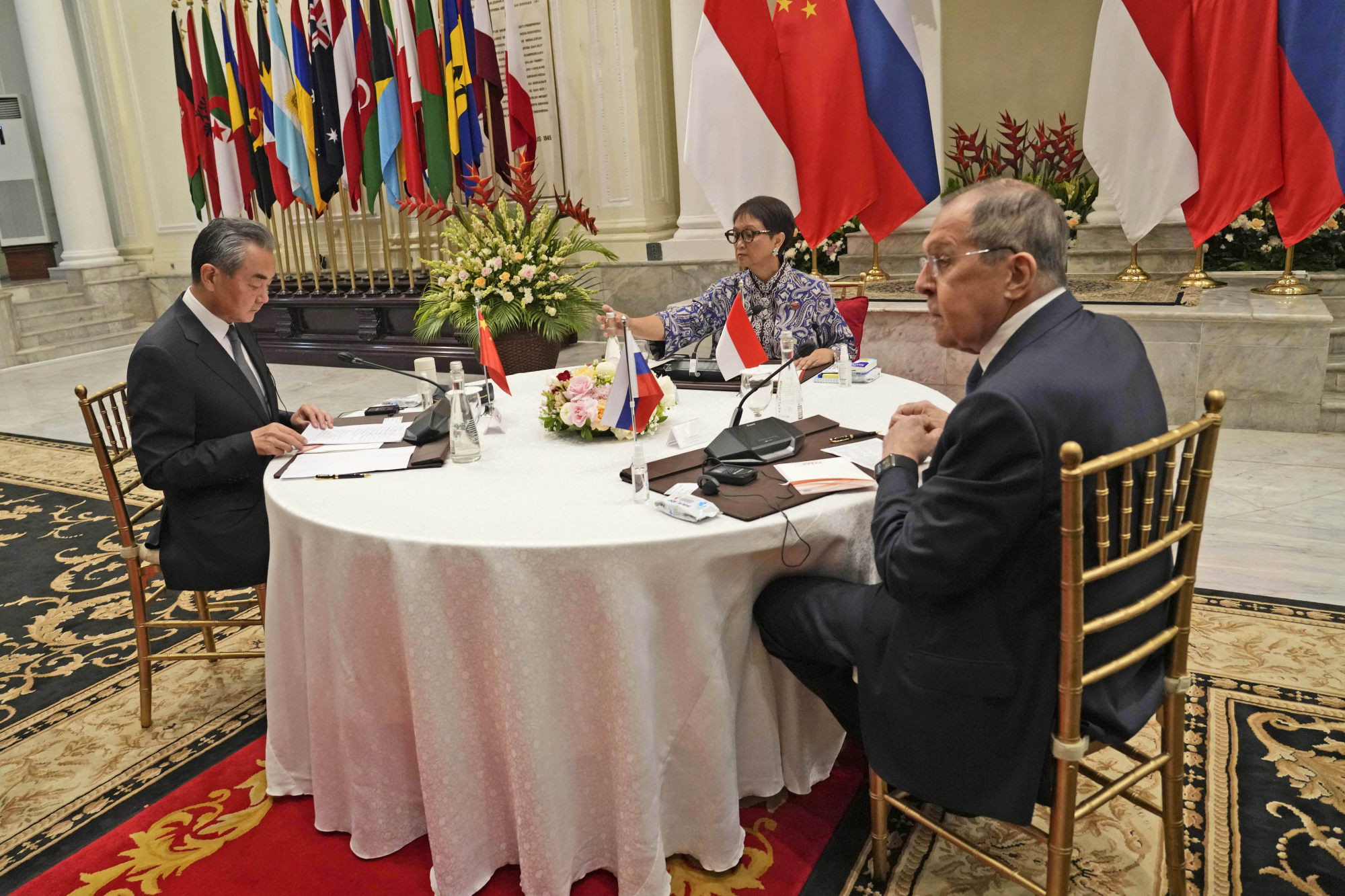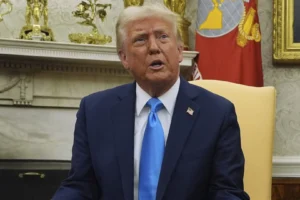China and Russia reaffirmed ties and vowed to work together to strengthen regional cooperation in talks on the sidelines of the Asean summit in Jakarta.
Top Chinese diplomat Wang Yi also highlighted the “important high-level contacts” between Beijing and Moscow in the coming months when he met Russian Foreign Minister Sergey Lavrov on Thursday.
“Against the backdrop of historic changes in the world, we always follow the important consensus of our heads of state, firmly support each other in protecting fundamental interests … promote a multipolar world and democratisation of relations,” Wang said in the meeting, according to a readout from China’s foreign ministry.
Wang also said that “in the second half of the year, a number of important high-level contacts are expected”, Russian state news agency RIA Novosti reported. “It is important for us to coordinate well, strengthen our bilateral and multilateral cooperation, and well implement the goals set by the leaders of our countries for the development of our relations,” Wang said.
The report quoted Lavrov as saying the talks were “timely”.
Lavrov said Russia would work with China to strengthen “Asean-centric mechanisms” while supporting the Southeast Asian alliance to play a constructive role in the Asia-Pacific region.
Wang and Lavrov also discussed international efforts to launch a peace negotiation process on Ukraine and agreed to boost coordination via global and regional platforms “in the interests of forming a more just and sustainable polycentric world order”, according to a Russian foreign ministry readout.
The meeting followed Chinese President Xi Jinping’s vow to deepen the partnership with Russia during Russian Federation Council Speaker Valentina Matviyenko’s visit to Beijing on Monday.
It also came after Nato lashed out at Russia’s aggression in Ukraine, Beijing’s ties with Moscow, and China’s alleged “coercive policies” that challenge the international order in a joint communique during its annual summit in Lithuania on Tuesday.
In a separate meeting in Jakarta on Wednesday, China, Russia and Indonesia – chair of this year’s Asean summit – agreed to collaborate on food and energy security and ensure smooth supply chains in response to economic crises and amid geopolitical tensions.
Wang said trilateral cooperation between the three Group of 20 nations would help to promote regional peace and security.
“China, Russia and Indonesia are both representatives of emerging markets and important members of the G20. To carry out exchanges and cooperation is in line with the common interests of the three countries and will help promote the process of multilateralism and promote regional peace and stability,” Wang was quoted as saying in a Chinese foreign ministry readout.
Wang is attending the annual Association of Southeast Asian Nations gathering – which began on Wednesday – in place of Foreign Minister Qin Gang, who is missing the summit because of “health reasons”.
Russia’s foreign ministry also said the country was willing to coordinate efforts with China and Indonesia on food and energy security, in a statement after Lavrov took part in the trilateral meeting.
In her opening remarks at the talks, Indonesian Foreign Minister Retno Marsudi said her country was always open to dialogue that would benefit global peace and prosperity while reaffirming its commitment to upholding international laws.

The war in Ukraine has severely disrupted global food and energy supply chains, and Russia has threatened to quit a landmark Black Sea grain deal that is due to expire on Monday.
China is the largest recipient of grains under the deal, which was brokered by the United Nations and Turkey in July last year to allow Ukrainian grain exports to be shipped through the Black Sea amid the conflict. Beijing has repeatedly called for grain exports to be guaranteed.
US Secretary of State Antony Blinken is also attending the Asean summit and is expected to press Asia-Pacific nations to tackle China’s growing economic and military influence in the region, with the South China Sea disputes set to dominate.
China has often criticised the US and Nato for “fanning the flames” of the war in Ukraine and over their expansion in the Asia-Pacific.
The Chinese foreign ministry responded to Nato’s joint communique on Wednesday by urging the security alliance not to interfere in nations’ internal affairs and initiate “bloc confrontations” in the Asia-Pacific region.
In a separate bilateral meeting with Retno on Thursday, Wang said China would continue to support Asean to play a greater role in international and regional affairs.
“China and Asean will jointly inject more stability and certainty into a world full of turmoil,” he said.
Source : SCMP










